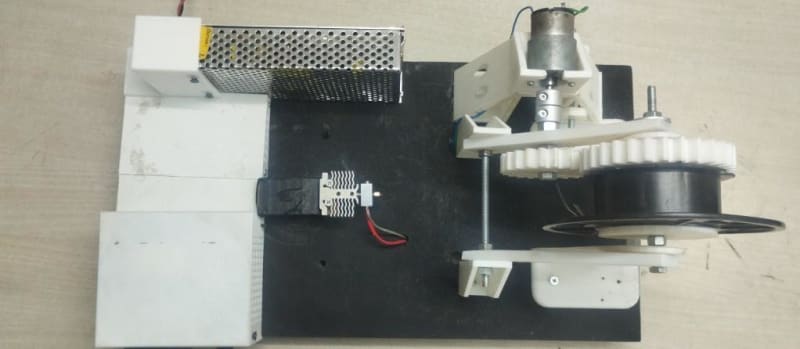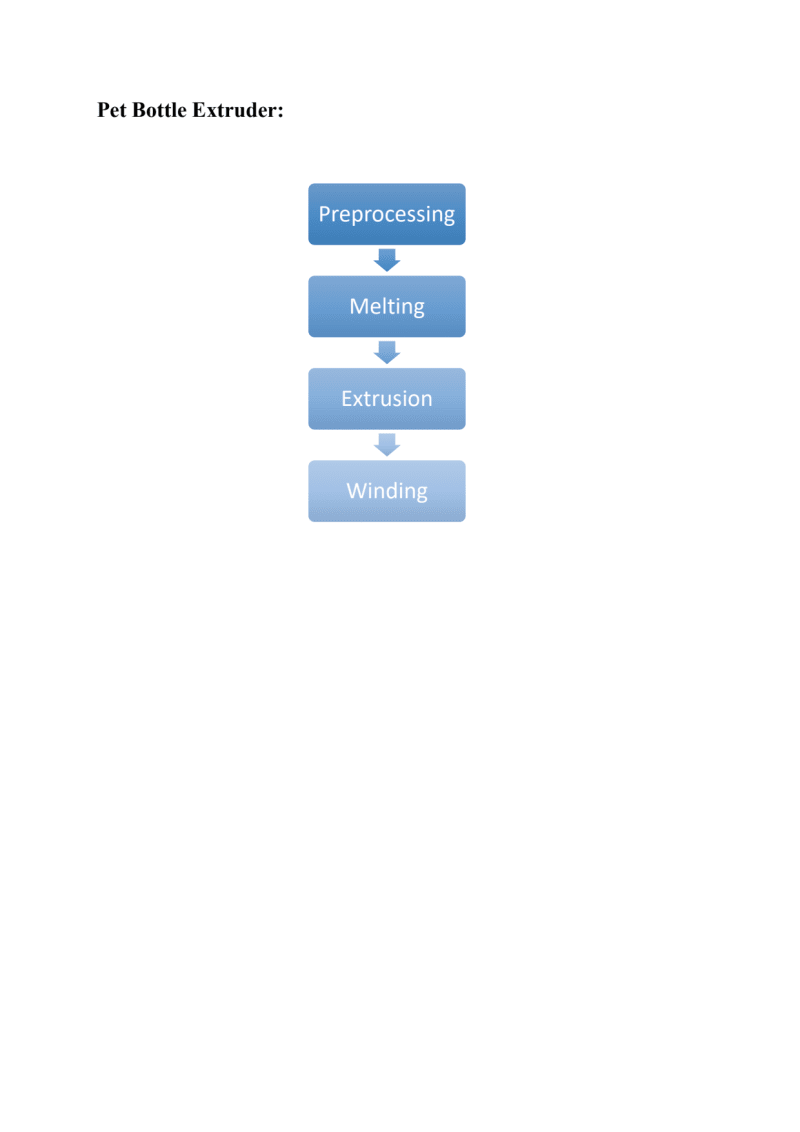PET Bottle Filament Extruder is an innovative, sustainable solution designed to address the growing environmental issue of plastic waste, specifically focusing on polyethylene terephthalate (PET) bottles. With the increasing consumption of plastic and the inefficiency of large-scale recycling systems, especially in countries like India where over three million tons of PET waste are discarded annually, this project presents a practical and affordable alternative that promotes decentralized recycling.
The core idea revolves around converting post-consumer PET bottles into high-quality 3D printing filament using a compact, low-cost extrusion system. Unlike conventional recycling plants that require bulk quantities and heavy capital investment, this setup can process even a single PET bottle, making it highly accessible to individuals, educational institutions, makerspaces, and small-scale innovators.
The process begins with a preprocessing stage where PET bottles are cleaned, dried, and chemically treated to remove embossed designs using dichloromethane. This step ensures uniformity in the filament output. Once processed, the bottles are cut into continuous thin strips. These strips are fed into a heated extrusion assembly where scrapped components from old Fused Filament Fabrication (FFF) printers—such as worn-out nozzles and heater blocks—are repurposed to melt and shape the PET into consistent filament.
A thermally controlled system ensures precise temperature regulation during extrusion, while a 3D-printed gear assembly driven by a DC motor winds the filament onto a spool. The filament produced maintains a consistent diameter of 1.75 ± 0.05 mm, compatible with standard 3D printers. Mechanical tests confirm that the resulting material meets commercial strength standards, achieving a tensile strength of up to 50 MPa.
What makes this project stand out is its simplicity, low cost, and high impact. The complete setup is developed under ₹10,000, and its energy consumption is minimal, requiring just 80–100 watts. From a single 1-liter PET bottle, up to 10 meters of filament can be produced, enabling users to repurpose everyday plastic waste into usable material for prototyping and functional printing applications.
This project bridges the gap between waste generation and material reuse, offering a scalable, environmentally responsible solution for additive manufacturing. It empowers individuals to contribute to the circular economy by transforming plastic waste into value-added products, thereby reducing landfill accumulation and promoting sustainable innovation at the grassroots level.
Like this entry?
-
About the Entrant
- Name:Jeevadarshan G
- Type of entry:teamTeam members:
- Ashwin A
- Anzer Akzen S









